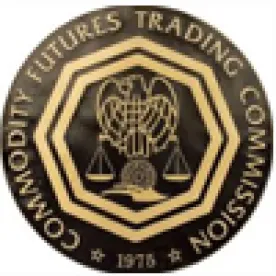On May 5, 2015, the U.S. Commodity Futures Trading Commission (CFTC) filed a single-count complaint in the Southern District of New York against two individuals alleging disruptive trading practices in violation of Section 4c(a)(5)(C) of the Commodity Exchange Act (Act). The CFTC alleges that Heet Khara (Khara) and Nasim Salim (Salim), both residents of the United Arab Emirates, engaged in spoofing and aided and abetted each other’s spoofing by entering orders for Gold and Silver futures contracts on COMEX (part of CME Group) without intending to execute those orders.
Allegations of Coordinated Spoofing
The complaint alleges that Khara would enter several large orders on one side of the market while also placing one or more smaller orders on the opposite side. Khara allegedly would then cancel the layered large orders as soon as the smaller orders traded, profiting over $200,000 in a one-month period.
When CME Group discovered Khara’s trading actions, his futures trading account was suspended by the futures commission merchant (FCM) where it was held. Subsequently, Khara opened up a new account at another FCM where Salim also had an account. Khara and Salim are alleged to have then engaged in the same trading practice, except this time in coordinated fashion: Khara would place layered orders on one side of the market, while Salim would place orders on the opposite side. After other market participants filled Salim’s orders, Khara would cancel his layered orders.
The alleged behavior at issue began in February of this year and continued through the end of April, at which point the CME Group denied both Khara and Salim access to all CME Group markets.
Ex Parte Court Order
The CFTC’s complaint seeks preliminary and permanent injunctions against Khara and Salim as well as civil monetary penalties, disgorgement of profits, and trading bans for violating the Act.
The same day the CFTC filed its complaint, the agency filed an ex parte application seeking a statutory restraining order. Per the Court’s ex parte order, Khara and Salim are restrained and enjoined from directly or indirectly transferring, selling, or liquidating assets, including assets held outside of the U.S. The order also prohibits them from engaging in any commodity trading activity, entering into transactions involving “commodity interests,” having commodity interests traded on their behalf, and engaging in any activity that would require registration with the CFTC.
Further, the Court ordered all financial institutions holding open or active accounts to (i) prohibit Khara and Salim from withdrawing, removing, or transferring assets and (ii) provide the CFTC with their account information, including balances. The court granted the request and ordered Khara and Salim to appear on May 19th, at which time the court will decide whether to enter a permanent injunction.
Outlook
The CME Group and CFTC took swift action against Khara and Salim, given that the trading activity at issue occurred only a few months ago. It is clear that regulators are diligently pursuing actions for spoofing and other trading practice violations, particularly with the recent CFTC complaint alleging manipulation and spoofing activity against Navinder Singh Sarao, a British trader facing U.S. civil and criminal charges, whose actions are alleged to have resulted in the stock market “Flash Crash” five years ago.


 />i
/>i

